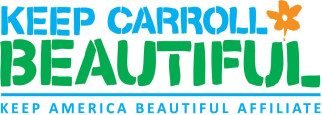Water Conservation Measures
-Use of biodegradable/natural cleaning products
-Use aerators and/or auto shut off faucets
-Use commercial ultra-flow toilets and/or urinals
-Use best management practices for storm water (natural water/drainage features, rain gardens, rain barrels, etc.)
-Use of non-phosphorus fertilizers for lawns
-Water efficient landscaping
-Use captured wastewater or well water for irrigation, etc.
Energy Conservation Measures
-Arrange for an energy service to conduct a commercial energy audit of your facility to help identify which energy conservation measures to use in your business
-Implementation of an office policy requiring chargers to be unplugged when not in use and all computers, appliances, and lights are turned off when not in use
-Complete regularly scheduled maintenance on HVAC (heating, ventilation and air conditioning) systems
-Use of energy efficient lighting and/or reduction of the number of florescent tubes used
-Use of motion sensors, timers or other lighting controls
-Use of Energy Star appliances
-Install a programmable thermostat
-Insulate all hot water pipes
-Install updated insulation or windows
Pollution Prevention
-Ensure garbage and other containers are emptied before they are full to avoid spills
-Buy rechargeable batteries for handheld appliances where practical (flashlights, handheld vacuums, etc.)
-Switch from commercial air fresheners to potpourri or vinegar and lemon juice
-Use of alternative fuel vehicles/mass transportation
-Provide special parking for carpooling employees, motorcycles, bicycles, or alternative fuel vehicles
Solid Waste Reduction
-Eliminate the use of polystyrene containers. Ideally, use only reusable containers. Otherwise, utilize one of the following options: paper, paperboard, compostable containers (starch-based sugarcane, rice hulls, and/or corn), or recyclable plastic
-Reuse or recycle everything for which there is a convenient collection or drop-off opportunity, such as: cardboard, tires, metals, office paper, mixed paper, newspaper, plastics, bottles, cans, glass, unwanted electronic equipment, car fluids such as anti-freeze and motor oil
-Where applicable, provide recycling containers at convenient and appropriate locations (i.e. lobbies, vending machines, kitchens, next to existing trash cans, individual offices/cubicles, etc.)
-Designate a storage area for spent electronics that may not be land filled (TVs, computer monitors, etc.) and ensure that they are turned over to an appropriate recycler and are not put into the trash or recycling containers
-Use computer fax modems that allow faxing directly from computers without printing or use email rather than faxing
-Recycle printer cartridges
-Purchase office paper with at least 50% being post-consumer waste
